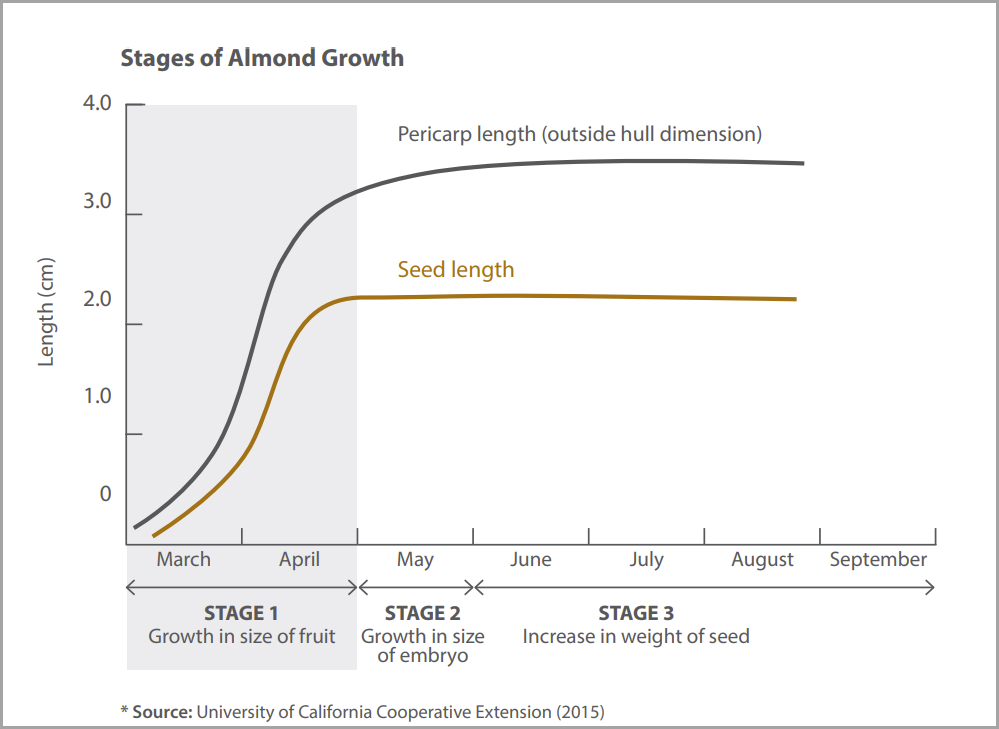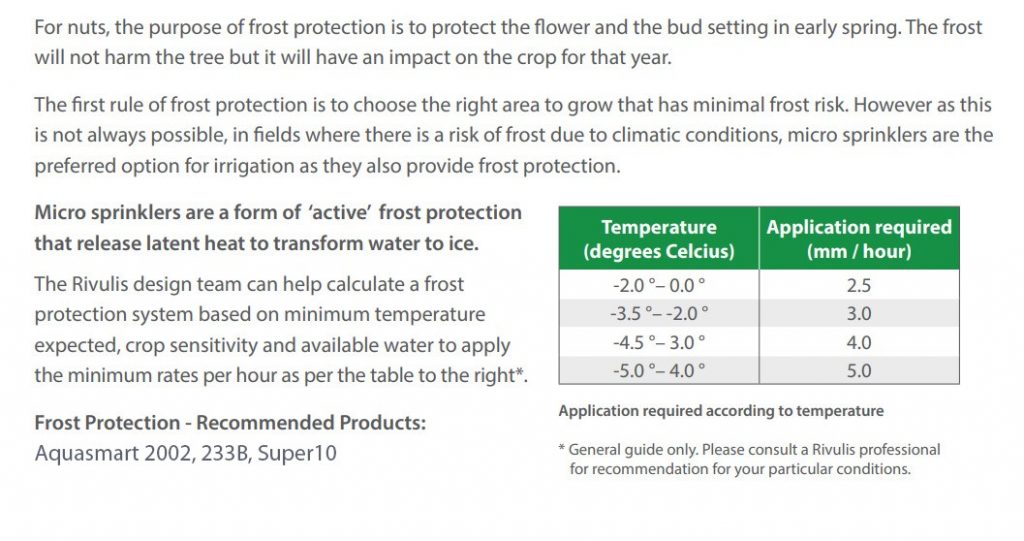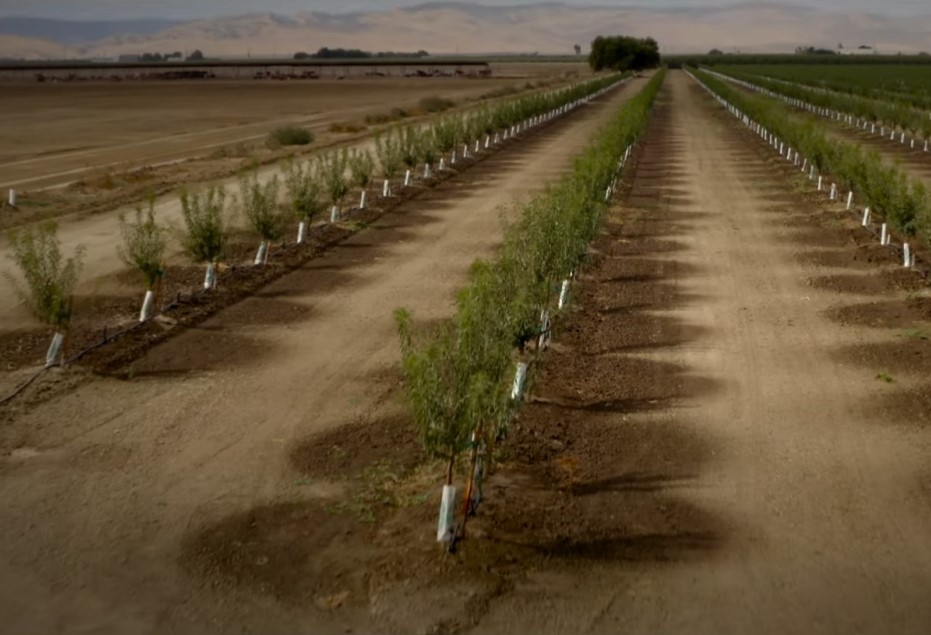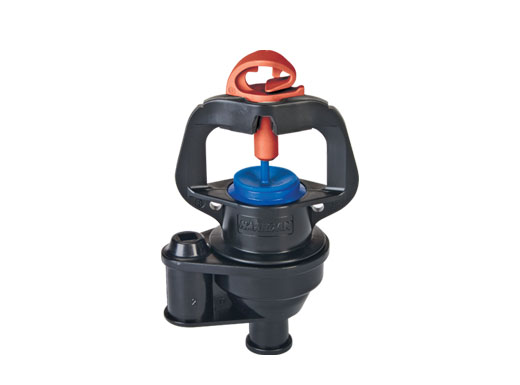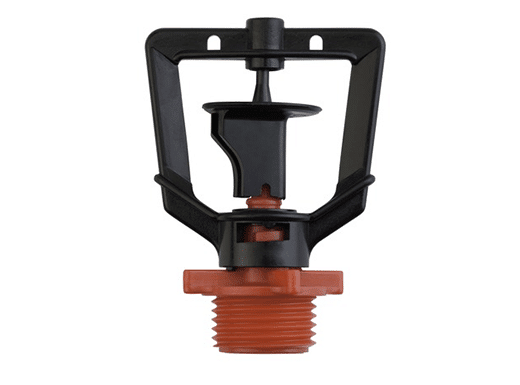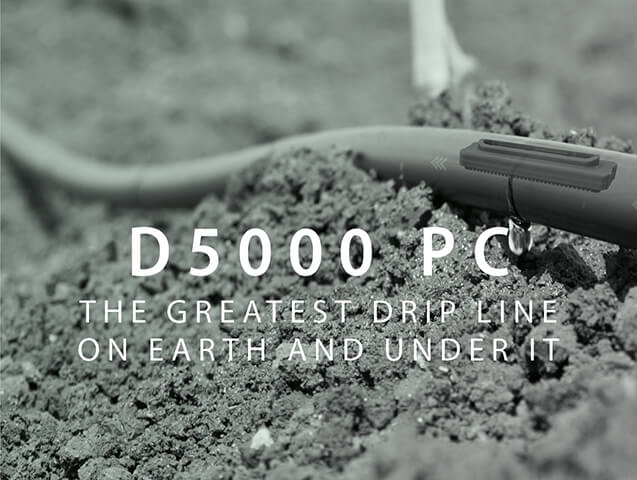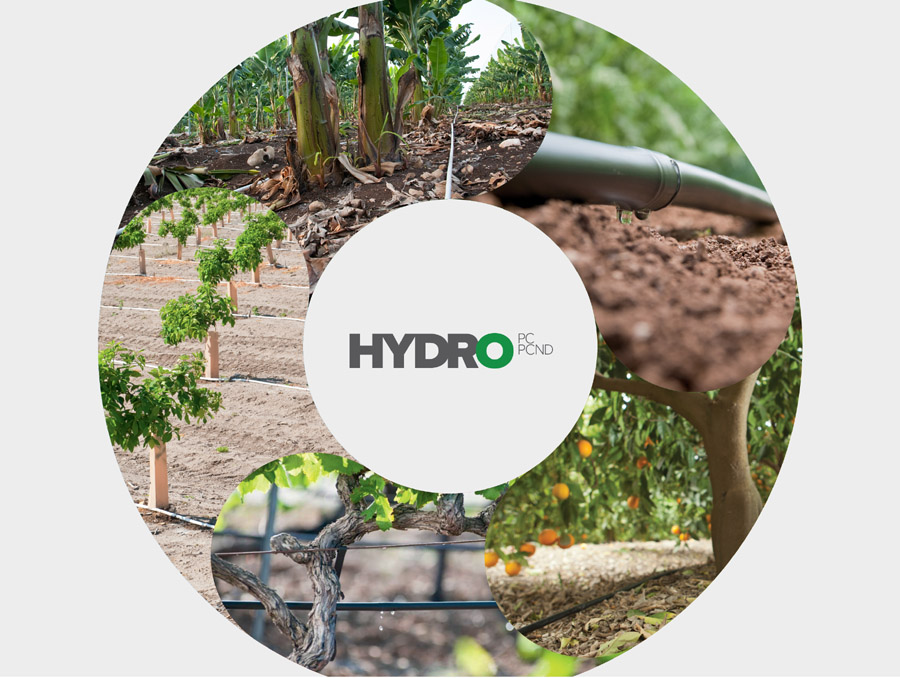
Nut Tree Irrigation Solutions for Productive Orchards
Nuts are one of the fastest-growing segments in farming due to the growing awareness of their health benefits across the globe which has vastly increased. Nuts also have a longer shelf life, leading to more consistency. These factors drive demand, and higher prices, and have resulted in the expansion of investment in new nut orchards. They’re also considered a nuts cash crop with high returns. As a trusted expert in irrigation solutions for nut crops, Rivulis supports farmers in achieving higher yields and profitability.
The Importance of Proper Irrigation for Nuts
An adequate water supply is essential throughout the nut development stages to support the growth and texture of kernels. Insufficient water can lead to smaller nuts and lower yields, as water stress affects the size and volumes. Water availability also directly impacts nuts’ moisture content and crunchiness when mature.
Under-watering nuts lead to stunted growth, smaller yields, increased pest susceptibility, and nutrient deficiencies. Overwatering leads to waterlogged soils, root rot, nutrient leaching, and decreased vigor, which can compromise nut quality and productivity for both the current and potentially the following year’s harvest (carryover effect).
Rivulis is here to help you get the balance right.
Stages of Almond Fruit Growth
In the graph below the three growth stages of the seed of almonds are illustrated, the bigger the seed, the bigger the pericarp that protects it. These size targets are directly linked to meticulous micro-irrigation throughout all stages of growth.
Minimal risk, maximum kernel size, and profit – is what to expect when partnering with Rivulis.
For comprehensive guidance—from irrigation and nutrition to post-harvest care—don’t miss our Almond Tree Cultivation Guide
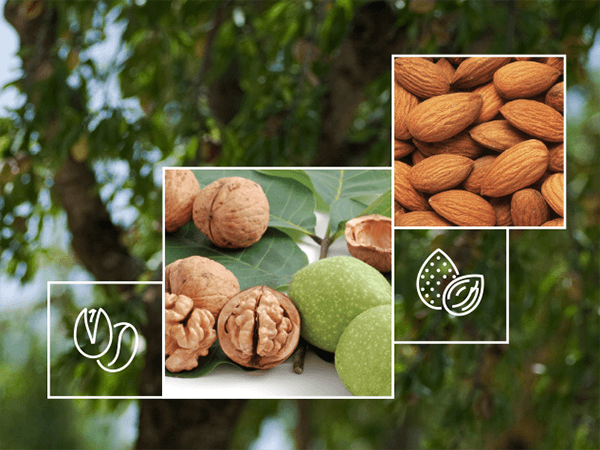
Micro Sprinklers for Nuts Crop Irrigation
Micro sprinklers are installed on stakes or hung from tubing suspended between the nut trees. A significant advantage of hanging sprinklers from a tube is that they do not interfere with machinery that operates on the ground.
Our sprinklers have a unique design that provides a flat trajectory to help prevent fruit damage while providing a large wetting diameter and anti-insect options. This mechanism closes the sprinkler head upon system shut-off. In addition to protecting against insects from entering the sprinkler, it also protects the sprinkler from dust entering it.
Frost Protection: Protecting Your Yield
For nuts, frost protection protects the flower and the bud setting in early spring. The frost will not harm the tree but will impact the crop for that season.
The first rule of frost protection is choosing the right area and variety to grow with minimal frost risk. However, as this is not always possible in fields with a risk of frost due to climatic conditions, and in this case micro sprinklers can provide frost protection through releasing latent heat.
Drip Fertigation in Nuts Crops
Drip Fertigation for nut trees offers several benefits in water and nutrient use efficiency and crop health for three main reasons:
- Micro irrigation systems conserve water by delivering precise amounts directly to the plant roots. This results in minimized evaporation and runoff compared to traditional methods. The targeted approach reduces water and fertilizer waste and ensures plants receive consistent moisture levels.
- Drip irrigation reduces disease risk by keeping foliage dry and lowering humidity levels that favor fungal and bacterial pathogens. This contributes to healthier plants and reduces the need for chemical treatments.
- Drip irrigation systems are designed to minimize environmental negative impact.

What Nuts Growers Are Saying About Rivulis
Irrigation Solutions for Nuts
Frequently Asked Questions about Nut Crops
The best irrigation system for nuts depends on various factors such as climate, soil type, nut variety, and local water availability. However, in most cases drip irrigation is widely recognized as one of the most efficient and effective methods for nut crops. Drip irrigation delivers water directly to the root zone of plants, minimizing water waste through evaporation or runoff. This precise water application promotes healthy root development and optimal nutrient uptake.
The frequency of watering nuts depends on several factors, including climate, soil type, stage of growth, and specific nut species. Monitoring soil moisture regularly and adjusting watering schedules is essential to ensure the roots receive adequate moisture without becoming waterlogged or overly dry. Efficient irrigation practices like drip irrigation can help maintain optimal soil moisture levels for productive yields.
To meet their water requirements, nuts typically need to be irrigated. It is not just about if there is enough rainfall over the season, it is about ensuring the crop receives sufficient water in key stages, which is impossible to achieve without irrigation. Irrigation helps ensure the correct soil moisture levels necessary for healthy nut tree growth, development, and production of quality nuts. Proper irrigation management is essential throughout the growing season, particularly during critical stages such as flowering, nut formation, and maturation. By providing adequate water, irrigation supports optimal nutrient uptake, enhances tree health, reduces stress, and promotes higher yields and better-quality nuts.

Any information provided herein, including any case study referrals are for information purposes only and actual results may vary.
Whilst every effort has been made to ensure all data is accurate, the accuracy of all data cannot be guaranteed and it is advised that you to consult with an irrigation specialist for your specific needs and to carefully review technical specifications for proper use.
As some products are not available in all regions, please contact your local authorized dealer for additional details.


